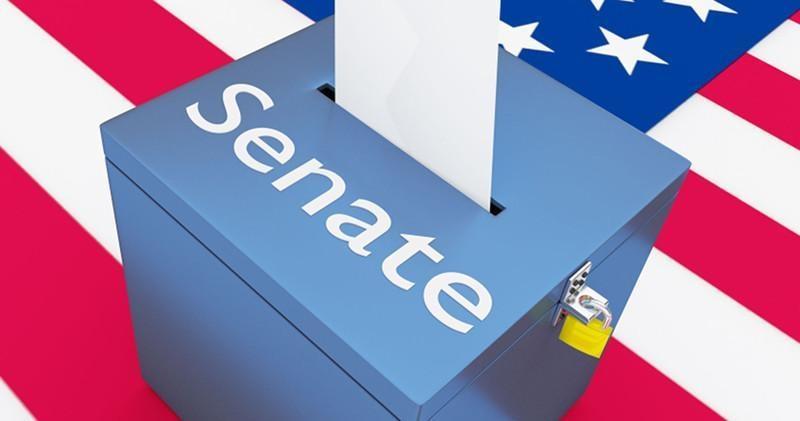
Michigan is surprisingly relevant in 2020.
The Democratic presidential nominee almost certainly has to carry the state next year to have any chance of denying President Donald Trump a second term. And Republicans are eyeing the seat of first-term Democratic Sen. Gary Peters.
Democrats must net three Senate seats next November and win the White House to take control of the chamber. That is almost impossible if Republicans swipe two Democratic seats.
Alabama is an obvious GOP target and a likely flip. But there are a handful of other Senate seats that look appealing for Republicans, including Minnesota, New Hampshire and Michigan.
Trump won only one of those states, Michigan, which puts the state at or near the top of the Republican Senate takeover list.
A Turnaround?
Last year was a banner year for Michigan Democrats. They won races for governor, attorney general, secretary of state, the state board of education and the Michigan State board of regents.
Democrats also picked up two U.S. House seats, and while Republicans retained control of both the state Senate and House (largely because Michigan is heavily gerrymandered in their favor), their margins shrunk dramatically.
But some Democrats remain nervous about their positioning in the state, particularly among white working-class voters.
In the 2016 exit poll, nonwhites accounted for 29 percent of all voters nationally but only 25 percent of Michigan voters. White men without a college degree — Trump’s core supporters — constituted 16 percent of voters nationally but 20 percent in Michigan.
Trump carried Michigan 47.5 percent to 47.3 percent in what was widely regarded as a stunning surprise.
Two years later, underdog GOP Senate nominee John James lost his challenge to Democratic incumbent Debbie Stabenow by only 6 points, 52 percent to 46 percent.
James is running again this cycle, hoping to upset Peters.
For Republicans, these two results demonstrate that Michigan can and will be competitive next year, with both the president and Peters on the ballot.
Numbers Tell the Story
A more detailed look at Michigan election results, however, demonstrates that the GOP has a steep hill to climb in both contests.
No Republican presidential nominee has drawn a majority of the vote in Michigan since George H.W. Bush in 1988 (54 percent).
His son, George W. Bush, took 48 percent in 2004 — three-tenths of a point more than Trump — but he still lost the state by 3 points.
In the four presidential elections immediately before 2016, the GOP nominee received 45 percent (2012), 41 percent (2008), 48 percent (2004) and 46 percent (2000).
Given those numbers, Trump’s 47.5 percent does not look so different, except in one way — he won.
Trump’s victory was more about Hillary Clinton’s weaker-than-normal showing rather than his own performance.
The last Republican Senate winner in the state was Spencer Abraham in...

